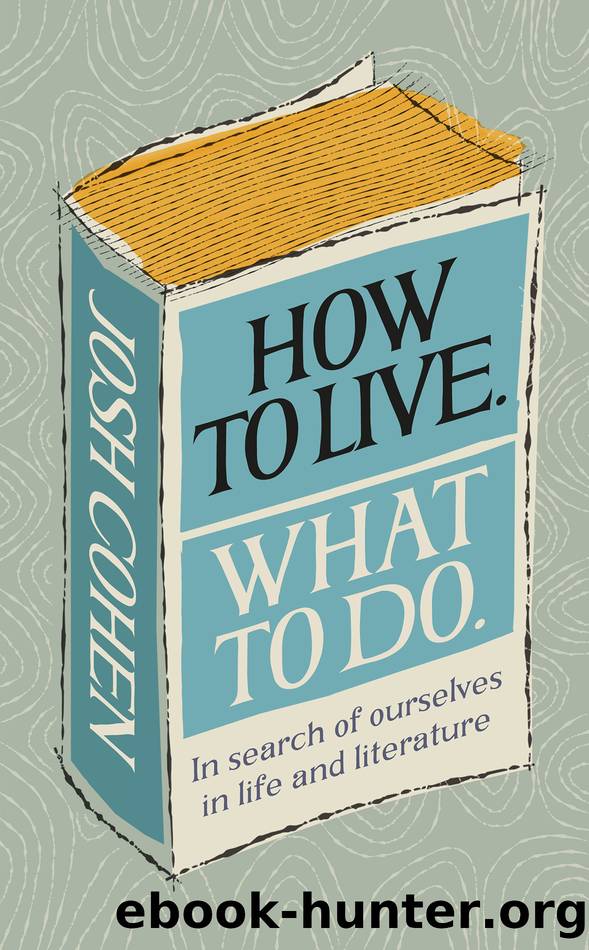How to Live. What to Do: In Search of Ourselves in Life and Literature by Josh Cohen

Author:Josh Cohen [Cohen, Josh]
Language: eng
Format: epub
ISBN: 9781473561250
Publisher: Penguin Random House UK
In Freudâs âOn Narcissismâ, he discusses the wildly inflated dreams parents have for their children. These, he suggests, are really the parentsâ forgotten childhood fantasies of becoming a hero, a prince or a queen â now channelled vicariously into their children. Childhood dreams are expressions of the sorest, âmost touchyâ point in the narcissistic system: âthe immortality of the egoâ. To be a knight or warrior princess is a kind of childâs code for living for ever. Growing up forces us to renounce that wish; having a child gives us a second shot. âParental love,â writes Freud, âwhich is so moving and at bottom so childish, is nothing but the parentsâ narcissism born again.â
Our children, in other words, become the vehicle through which we keep alive our dreams of immortality. Even as our conscious minds try to see our kids as clearly and realistically as possible, our unconscious insists on their matchless beauty and brilliance. No teacher could ever appreciate them enough, no employer could ever deserve them enough, no suitor could ever be worthy of them. Everyone dies, yes, but our child is not everyone.
This may help explain why we have so much difficulty in taking seriously the facts of climate change; the prospect of our extinction violates that primitive belief in our children as the perpetuation of ourselves far beyond the puny confines of our individual lifespan. For many of us, the idea that every last trace of us will disappear from the world is unendurable. Nor is it so different for non-parents, for whom the same unconscious fantasies of immortality, and the same horror of permanent erasure, can be channelled into creative, social and institutional achievements that they hope will outlive them.
Portia, Johnny and Ruth showed us that rebellion, more than just a struggle against the wrongs of the past, is the struggle to preserve and build a future. Like rebellion, ambition requires the assurance of a future in order to be meaningful. We could say rebellion and ambition are negative and positive sides of the same coin. In psychoanalytic terms, rebellion represents the killing of the father who stands in the way of our desires and refuses our demands â âThe King is Dead!â; ambition expresses the wish to occupy his place and so extend and expand his presence in the world â âLong Live the King!â
But perhaps this is too simplistic, for just as rebellion can be a way of tacitly affirming life, ambition can be a way of unwittingly destroying it. After all, what is environmental catastrophe if not the unintended consequence of our ambitions for the world, our wishes to increase material prosperity, to shorten local and global distances, to heat and light and shelter and feed exponentially increasing numbers of people? In achieving these seemingly laudable aims, have we not exploited, enslaved and destroyed innumerable human beings, species and natural resources?
As weâre about to see, this strange ambiguity at the heart of collective ambition is equally visible at the level of our individual lives.
Download
This site does not store any files on its server. We only index and link to content provided by other sites. Please contact the content providers to delete copyright contents if any and email us, we'll remove relevant links or contents immediately.
The Longevity Diet by Valter Longo(4445)
The Body: A Guide for Occupants by Bill Bryson(3797)
Ikigai by Héctor García & Francesc Miralles(3140)
Limitless by Jim Kwik(2619)
The Body by Bill Bryson(2218)
The Checklist Manifesto by Atul Gawande(2202)
Memory Rescue by Daniel G. Amen(1960)
What Color Is Your Parachute? 2015 by Richard N. Bolles(1927)
Becoming Myself by Irvin D. Yalom(1908)
Breath by James Nestor;(1760)
Fat for Fuel by Joseph Mercola(1694)
Memory Rescue: Supercharge Your Brain, Reverse Memory Loss, and Remember What Matters Most by Amen Dr. Daniel G(1570)
Weight Training by Thomas Baechle(1461)
Awakening Your Ikigai by Ken Mogi(1460)
50 After 50 by Maria Leonard Olsen(1375)
Starting Over (Sugar Creek Romance ) by Jordan Silver(1373)
1610396766 (N) by Jo Ann Jenkins(1296)
The Telomerase Revolution by Michael Fossel(1286)
Supernormal: The Untold Story of Adversity and Resilience by Jay Meg(1250)
